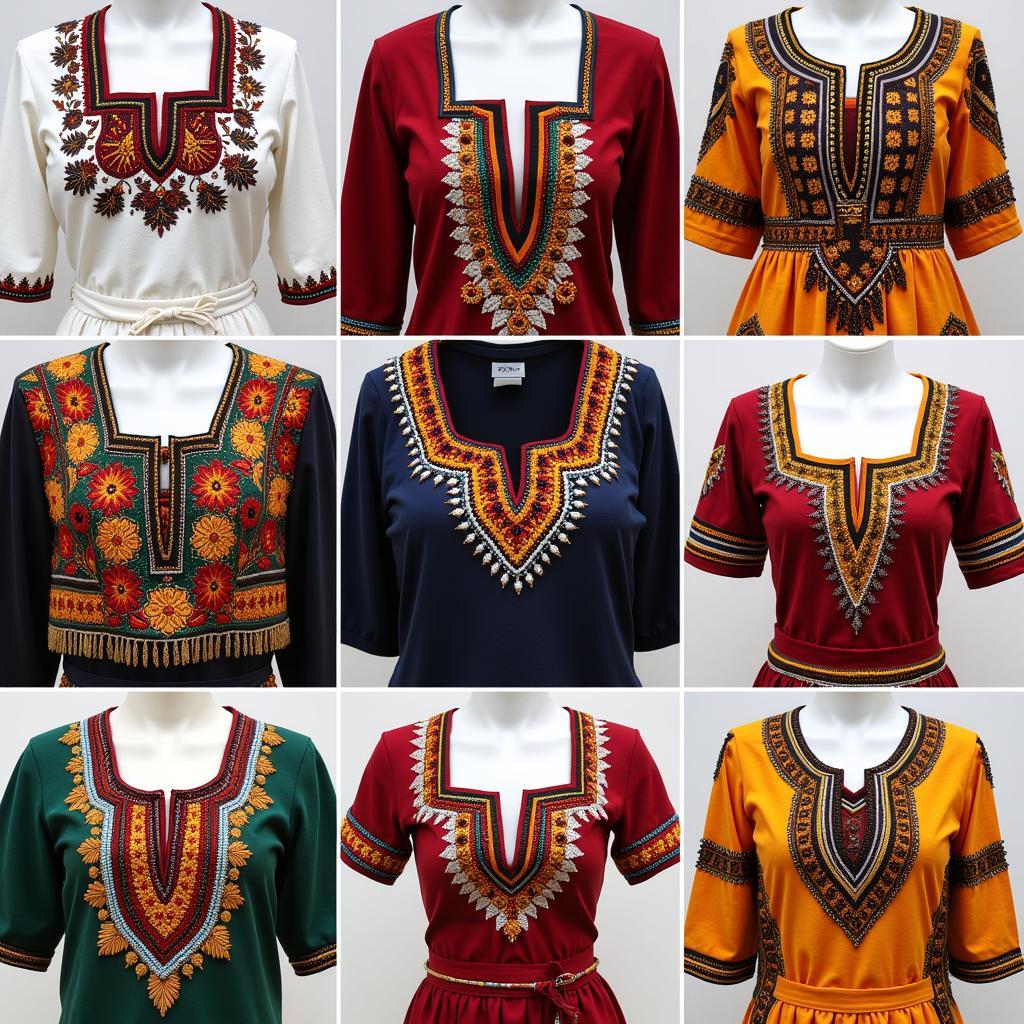Unveiling African Coffee Characteristics: A Journey from Bean to Cup
African coffee is renowned worldwide for its diverse and captivating flavors. From the bright acidity of Kenyan coffee to the earthy notes of Ethiopian Yirgacheffe, the continent offers a unique tapestry of coffee experiences. This article delves into the distinct African Coffee Characteristics, exploring the factors that contribute to their remarkable profiles. We’ll journey from the fertile volcanic slopes to your steaming cup, uncovering the secrets behind this beloved beverage.
Exploring the Diverse Flavors of African Coffee
African coffee beans exhibit a remarkable range of flavor profiles, influenced by a variety of factors including altitude, soil composition, processing methods, and varietal. Understanding these influences is key to appreciating the nuanced characteristics of each cup. After this section, we’ll dive into the specific regions and their unique offerings. For now, let’s look at some general characteristics of coffee from this continent. You’ll find that African coffees often feature bright acidity, complex aromas, and a medium to full body. Some popular flavors include citrus, floral, berry, chocolate, and spice notes, offering a symphony for the palate.
The high altitudes where much of African coffee is grown contribute to the development of dense beans with concentrated flavors. The rich volcanic soils, particularly in regions like Ethiopia and Kenya, imbue the coffee with distinctive mineral notes and complex aromas. Furthermore, the diverse processing methods employed across the continent, ranging from washed to natural and honey processed, play a crucial role in shaping the final cup profile.
African Coffee Regions and Their Unique Profiles
From the birthplace of coffee in Ethiopia to the volcanic slopes of Kenya and the lush highlands of Rwanda, each African coffee region boasts its own distinctive terroir. Ethiopian coffee, often considered the pinnacle of coffee excellence, is known for its bright acidity, complex floral aromas, and delicate berry or citrus notes. Kenyan coffee, on the other hand, is celebrated for its vibrant acidity, black currant flavors, and full body. Rwandan coffee offers a balanced cup with bright acidity, floral notes, and hints of caramel or chocolate. These regional variations exemplify the remarkable diversity of African coffee.
African coffee regions are truly special. Exploring the nuances of each region is a journey for the senses. Each sip tells a story of the land, the climate, and the people who cultivate these precious beans.
What Makes African Coffee So Special?
So, what truly distinguishes African coffee from other origins? The answer lies in the convergence of several factors: the unique terroir, the meticulous cultivation practices, and the rich cultural heritage associated with coffee production. The high altitudes, volcanic soils, and diverse climates create ideal conditions for cultivating exceptional coffee beans. Moreover, many African coffee farmers adhere to traditional farming methods, prioritizing sustainability and quality.
African coffee roasters play a crucial role in bringing these unique flavors to coffee lovers around the world. They expertly roast the beans to highlight the inherent characteristics of each origin, ensuring a memorable coffee experience.
Brewing the Perfect Cup of African Coffee
Brewing African coffee is an art that allows you to fully appreciate its nuanced flavors. The brewing method you choose significantly impacts the final cup profile. Methods like pour-over and French press are particularly well-suited for showcasing the bright acidity and complex aromas of African coffees. Experimenting with different grind sizes and water temperatures can further enhance the flavor extraction.
African coffee offers a truly unique experience for coffee aficionados. From the bean to the cup, each step in the process contributes to the distinctive characteristics of this beloved beverage. Whether you prefer a bright and fruity Ethiopian Yirgacheffe or a full-bodied Kenyan AA, there’s an African coffee to suit every palate.
Conclusion: Embracing the Richness of African Coffee
African coffee, with its diverse characteristics and rich cultural heritage, offers a truly exceptional coffee experience. From the high-altitude farms to your steaming cup, the journey of African coffee is a testament to the dedication and passion of the people who cultivate these precious beans. Exploring the diverse flavors of African coffee is an adventure that will tantalize your taste buds and leave you craving more.
FAQ:
-
What are the common flavor profiles of African coffee?
African coffee often exhibits bright acidity with flavors ranging from citrus and floral to berry, chocolate, and spice. -
Why is Ethiopian coffee considered so special?
Ethiopian coffee is often considered the origin of coffee and is known for its bright acidity, complex floral aromas, and delicate fruit notes. -
What brewing methods are best for African coffee?
Pour-over and French press are recommended for highlighting the nuances of African coffee.
African house music 2019 showcases the vibrant culture and artistic expression that permeates the continent, much like the diverse flavors found in its coffee.
Common Questions about African Coffee Characteristics:
- How does altitude affect African coffee flavor? Higher altitudes generally lead to denser beans and more complex flavor profiles.
- What is the difference between washed and natural processed coffee? Washed processing results in cleaner, brighter flavors, while natural processing leads to fruitier, more complex profiles.
Other Questions to Consider:
- What are the best African coffee beans for espresso?
- How can I store African coffee to maintain its freshness?
For further assistance, please contact us at Phone Number: +255768904061, Email: kaka.mag@gmail.com or visit our address: Mbarali DC Mawindi, Kangaga, Tanzania. We have a 24/7 customer service team.


